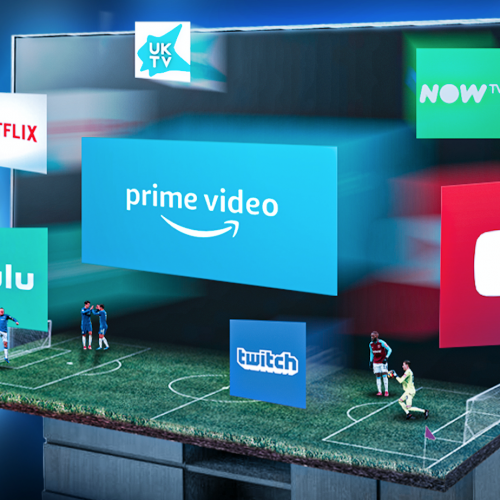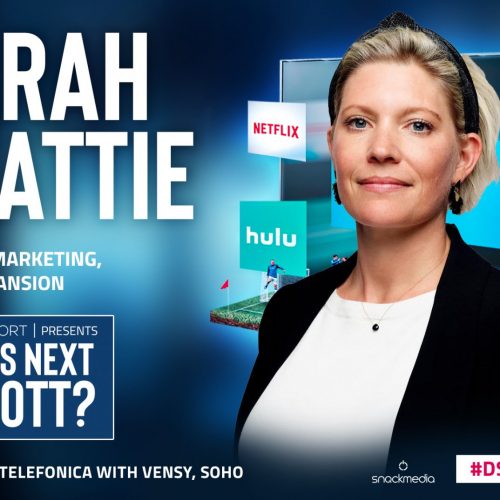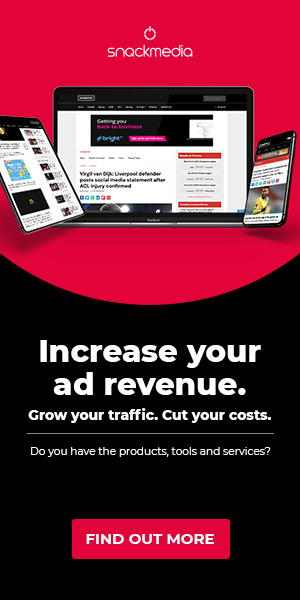What’s next for OTT? Introducing Stream Time’s Trevor Evans
The ability to stream direct to consumer is something sports fans are craving more and more of. The monetary commitment of a Sky or Virgin package in the UK has somewhat increased demand for a cheaper, more focused deal, tailored to each individual fan.
OTT platforms have started to deliver this in patches, with various sports and leagues streamed online or direct to devices for a simple one-off payment, or more likely a monthly commitment, usually far cheaper than the broadcasting options available.
The monetary gains from such a platform are not only to be enjoyed by the consumer, but by rights-holders as well. With agencies & broadcasters being cut out of the deal.
If this were to be the case, are we about to see OTT disrupt the market even further?
One of the big talking points has been Amazon’s recent streaming of the Premier League across two rounds of fixtures in December. For the most part, it was a successful debut for online soccer streaming. However, there still remains a lot of work to do before this solution, one that allows fans to very easily dip in and out of live games, to truly work on a larger scale.
We’ll debate this and more at our upcoming event, ‘What’s next for OTT?‘, which will take place at Vensy, Telefonica in Soho, London. Ahead of the event though, we caught up with one of our experts on the panel, Trevor Evans, who discussed Stream Time and gave his own views on OTT. But first, we wanted to get to know our panellist a little more.
“I’ve always been interested in technology and how it can be used to solve problems,” he said. “I studied Computing Science and Business at the University of Aberdeen and one of my first jobs was delivering technical specifications to business problems – such as automating the QA process at Aston Martin.”
“Stream Time fixes a problem that I experienced personally. As a keen football fan I was trying to find video coverage of the latest highlights or interviews with players, and I was having to search five or six different places for that. This was time consuming and frustrating. I also follow other sports like badminton and squash which requires the same effort, duplicated.”
“To do this I needed to go to Google or search several different platforms to find the highlights or interviews. So I looked to see if there was an existing platform that aggregates all of that for me, and there wasn’t. That’s where the foundation for Stream Time came from. It’s a point of reference for users to enjoy curated video content from multiple different sources. Upcoming or on-demand. Long or short form. Premium or Freemium.”
Having built a service like this, you’d be right to assume Trevor anticipated a movement in the industry, and was expecting OTT to disrupt as much as it has.
“This is just the beginning of it, really.
“Live-streaming is by no means new, but there were technological barriers to entry in terms of internet speed, & bandwidth. However there was a large amount of content already available but it was not easy to distribute, and definitely not easy to discover. But now OTT is becoming readily available for all that want to get into the game – with Endeavour providing the tech to do this very easily.
“For example, Red Bull just indicated that they want to acquire the Formula 1 rights for Servus TV in Austria. So Red Bull will become a Tier 1 sports broadcaster. But if you’d mentioned that four or five years ago, nobody would have foreseen that.”
Having expected the growth of OTT & streaming services, does Trevor predict a movement for the Premier League?
“Yes – but on a reduced level and not in the main markets where they sell the rights for a lot of money.
“I think in the smaller territories they’ll run a trial initially, something very similar to what IMG did with Serie A in the Nordics as StriveSport, which was a success.
“So yeah, it can be done.
“You also have to ask: will people pay an extra 10 euros a month for a dedicated Premier League OTT service, as they are currently willing to do so for Netflix? There’s a plethora of content on Netflix. There are tons of movies, tons of series constantly being updated, etc.
“Whereas the Premier League is just one product – there’s a maximum of 10 games per week, 38 weeks of the year. Although there’s the potential for additional content around it, which the clubs will want to retain of course. They’re not going to give that up because they want to monetise it to with their own OTT platforms like Liverpool do with LFC TV and their YouTube premium service.
“So if the Premier League do take this route, they will also need to invest heavily in all other aspects of an OTT business and being a D2C product. At the moment it is quite comfortable selling the rights to partners that will do all of this for them – but there are a number of factors that could change this dynamic. But these rights holders put in a lot of work to then sell to subscribers. Is the Premier League equipped for that now? Perhaps they could learn from US rights holders such as NBA TV or MLB TV”
About author
You might also like
Major Events Summit 2020 – The Virtual Meeting Place for the Sports and Events Community
We’re less than a month away from MEI’s flagship Major Events Summit, now re-imagined as a virtual event. Major Events Summit brings together decision-makers and influencers involved in supplying the
‘What’s next for OTT?’ has been postponed
We are disappointed to announce that our event ‘What’s next for OTT?’ has been postponed as all events in Telefonica buildings globally exceeding 25 people have had to be cancelled
What’s next for OTT?: Introducing DAZN’s Sarah Beattie
The ability to stream direct to consumer is something sports fans are craving more and more of. The monetary commitment of a Sky or Virgin package in the UK has








